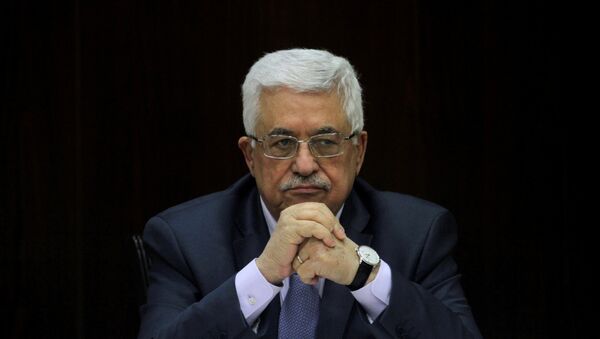US President Donald Trump's peace team offered Palestinian President Mahmoud Abbas the idea of establishing a Palestine-Jordanian confederation, Abbas revealed Sunday.
Speaking before a meeting with Israeli left-wing movement Peace Now and Israeli lawmakers, Abbas said he acknowledged his interest in such a project, but only if Israel would be a part of it.
"I was asked if I believe in a federation with Jordan," Abbas said about a talk he held with Trump aide and son-in-law Jared Kushner and US Middle East envoy Jason Greenblatt, according to Haaretz. "I answered: Yes, I want a confederation with Jordan and Israel. I have asked the Israelis if they would agree to such an offer."
It is uncertain when the talks took place, as Abbas refused to meet with US representatives following Trump's unilateral recognition of Jerusalem as the capital of Israel.
Abbas's reply is believed to be an attempt to torpedo the project, however, since it is highly unlikely that Tel Aviv would be interested in joining into a confederation with Jordan.
It is undisclosed what level of autonomy Palestine might gain under a confederation, as well as other administrative details of such a plan.
Abbas expressed his willingness to agree on a land-swap agreement with Israel, but did not elaborate on how an evacuation of Israeli settlements from the West Bank would be organized.
Speaking with Israeli activists and lawmakers, Abbas said he views Washington as "hostile towards the Palestinians," adding that US is "closing down the peace process."
"The US wants to completely sabotage UNRWA," he said, referring to the UN's aid agency for Palestinian refugees.
After his election, Trump said that an Israeli-Palestinian peace was a priority and some analysts predicted that the newly-minted US leader might manage to deliver on a deal to end the long and bitter rivalry between the two nations.
However, the unilateral recognition of Jerusalem as the Israeli capitol buried hopes for such a deal. In March, a peace plan was unveiled that involved the creation of a Palestinian state that would encompass Gaza Strip and only half of today's West Bank, with most Israeli settlements remaining in place and no recognition of Jerusalem — or even half of it — as Palestine's capitol.
The plan put forth by Tel Aviv and the Trump advisors from the US was fiercely rejected by Palestinians.




